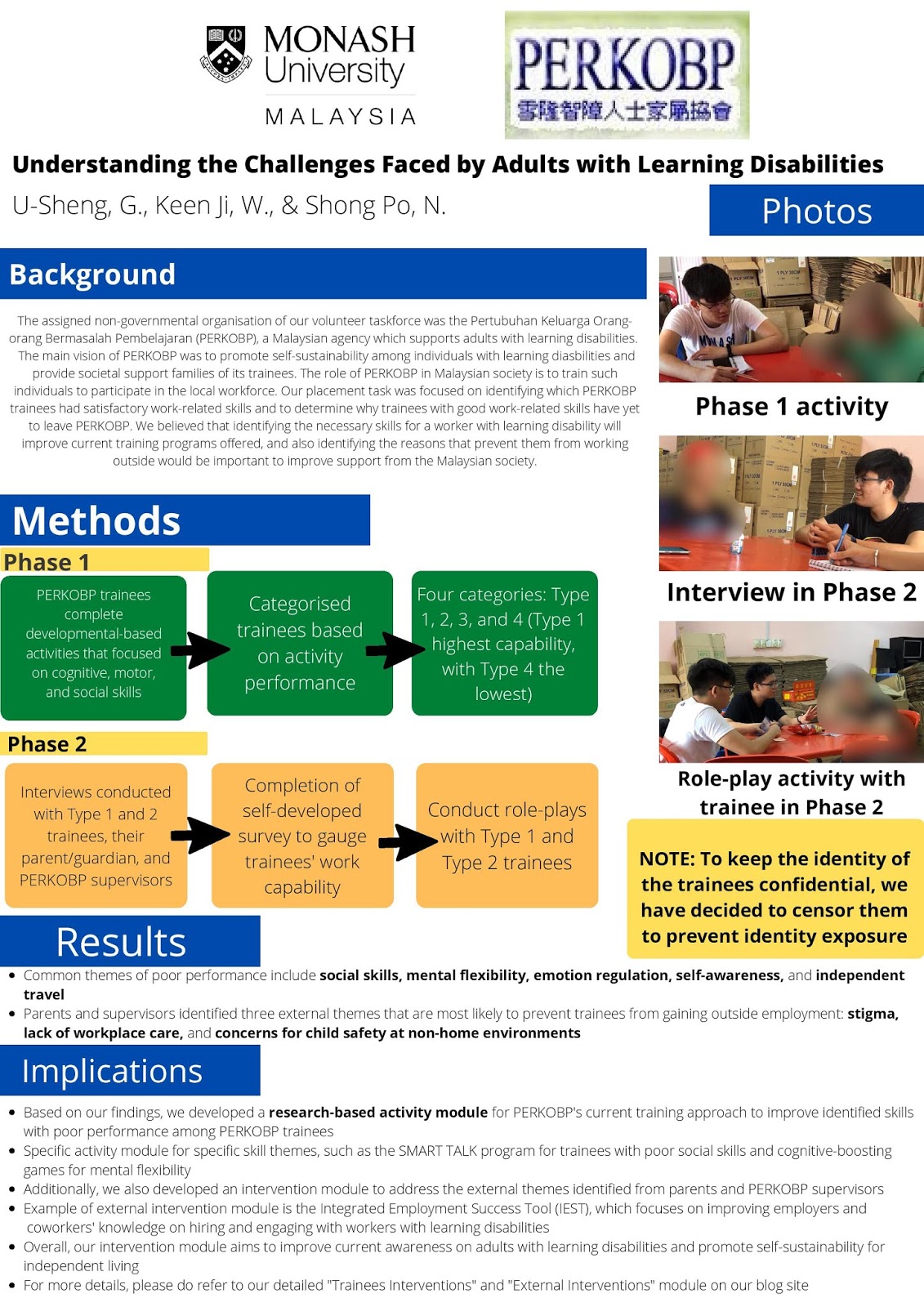Phase 2
Phase 2
Phase 2 goes in depth with a few selected trainees. We only went through the individuals whom we deemed have higher potential to obtain a job outside, based on our observation of their work ability in PERKOBP and activity performances. Our initial selection was everyone in the Type 1 and a few from the Type II category. Then we conducted: (1) an interview with the trainees, (2) an interview with their respective parents and some PERKOBP supervisors and lastly, (3) short role play sessions for those trainees.
The purpose of the interview with the trainees was not only for us to gauge if they can work elsewhere, but also to assess their self-evaluation of their own capabilities. Thus, we also had them complete a self-evaluation form which assesses employability and life skills. However, only few are aware of their own skills and abilities, making it hard for them to self-evaluate. Hence, we also asked some of their parents to complete the form to gain more insight about their abilities.
The interviews with the parents were very insightful as we get to know the trainees better. We also obtained their opinions about people with learning difficulties working outside, and some of the problems faced by those people (i.e. lack of workplace support, stigmas from organisations, etc.).
Interviews with the supervisors are somewhat an extension of the parent’s interviews, as the supervisors themselves have children working in PERKOBP. They not only spoke about their children, but also whether other trainees can work outside and the reasons for it.
Lastly, we conducted brief role-plays with the trainees to assess their living skills, which were handling money and retrieving items from a list. For this activity, we also selected some trainees from type III category, whom we deemed have higher potential. Once again, some were able to perform well, while some struggled with our instructions and the concept of money.
Overall for this phase, we came to a realization that our initial assumption that only Type I and II trainees were more capable, was quite wrong. There were two other Type III trainees who were able to follow our instructions in the role play better than the Type I’s or II’s. However, communication was a challenge for those in type III as we couldn’t get much verbal response from them, only actions.


Comments
Post a Comment